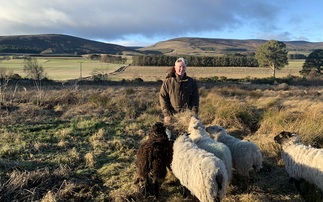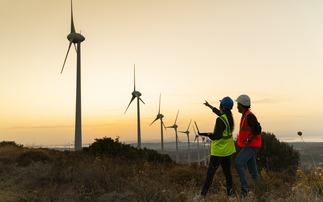To fulfil the spirit of the SDGs we must give workers a say in economic decision-making, argues the New Economics Foundation's Fernanda Balata
In recent months, as the science has become impossible to ignore, climate change has finally shot up the political agenda. In May, the UK Parliament declared a climate emergency and last month it passed legislation committing the country to a net zero emissions target by 2050. And there's no doubt that political decisions have come as a result of increasing public pressure. But that's not the full story.
Ending the fossil fuel age - whether in ten, twenty or thirty years - means delivering the biggest industrial transformation the world has ever seen. It affects everyone, everywhere - how we power our activities, the way we do business, what we eat, the way we live - it all changes. And it must change fast. Indeed, it is already changing.
The 'Yellow Vests' movement in France has made it very clear what the stakes are for those at the frontline of those changes. It has also highlighted what politicians and the broader elite have yet not accepted as the challenge they must address. For people everywhere, climate change policies are not the issue. It is about fairness; who 'wins' and who 'loses' as we transition to a post-carbon economy.
Governments cannot allow the climate transition to happen in the same way as past industrial transitions, when many workers, communities and regions got left behind - the consequences of which we still see today, as exposed during the Brexit vote and the last US presidential election. They are symptoms of a world that is deeply unequal and divided, with vast concentrations of wealth and power, and unstable ecosystems.
SDG8 asks UN member states to deliver economic growth and decent work for all. The 2030 Agenda already recognises the "enormous disparities of opportunity, wealth and power" as one of the "immense challenges" to sustainable development. But SDG8 fails to adequately guide the world's economies towards addressing it. Instead, by focusing on increasing GDP growth as an end in itself, it promotes what has been the biggest enemy of sustainability of nearly the past century. It is now virtually impossible to disagree that measuring economic success by growth in GDP is neither desirable nor sustainable. And it falls short of helping us answer the most important questions - who decides what drives the economy or what kind of work we benefit from? Indeed, what do work, and jobs mean in 2019? And what about in 2030?
In the past decades, corporate power has been growing as workers' rights and unions' power has declined. With precarious work on the rise and the uncertain future of work due to automation, there is also no way that we can continue to demand decent work for all without challenging the current mainstream business models of shareholder primacy.
For businesses, the climate transition is not only about changing their relationship with the climate and nature. Perhaps more challenging to get business leaders to come to terms with is that power relations between workers and businesses must also change. Economic democracy must become a foundation for what constitutes a successful business model in the new economy: more democratic workplaces, and the sharing of economic benefits more fairly amongst its workforce.
Findings from the new international Economic Democracy Index, launched earlier this year by the University of Glasgow, in partnership with Nottingham Trent University, Oxfam, and the New Economics Foundation, show that "when economic decision-making power is in the hands of the public rather than corporate interests, economies tend to have lower rates of inequality, and higher levels of productivity". Early findings also suggest that economic democracy helps achieve sustainability goals such as the reduction of greenhouse gas emissions.
As UN member states meet this month to review the 2030 Agenda for Sustainable Development, they should propose a reframing of SDG8 in light of the urgent just climate transition challenge. Rather than promoting and simply measuring growth in GDP, member states should be supported to prioritise increasing levels of economic democracy - protecting and promoting individual economic rights, strong collective associations (such as trade unions) and the spreading of decision-making powers across the economy, including throughout businesses.
The SDGs are a great achievement of the international community. But as the youth of the world strikes to remind us that the climate transition is also about what kind of future we are creating, the SDGs must listen and adapt. The goals must be relevant to, enable and support, a just climate transition, a Green New Deal. And increasing economic democracy - in the workplace, within countries and among the international community - should be front and centre in that agenda.
Fernanda Balata is Senior Programme Manager (Environment and Green Transition) at the New Economics Foundation. You can follow her on Twitter: @FeBalata.







